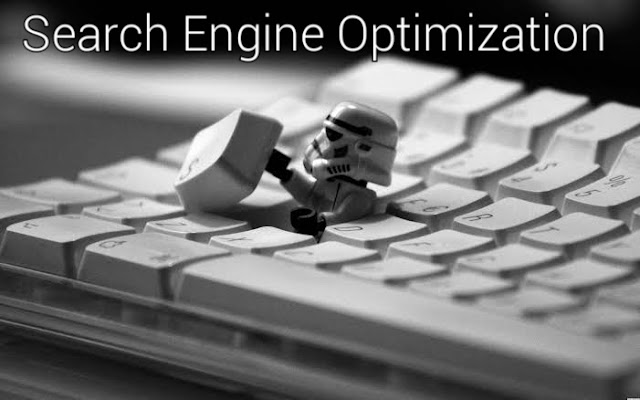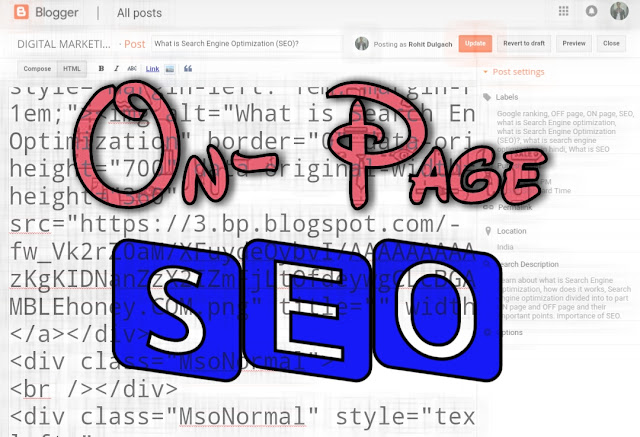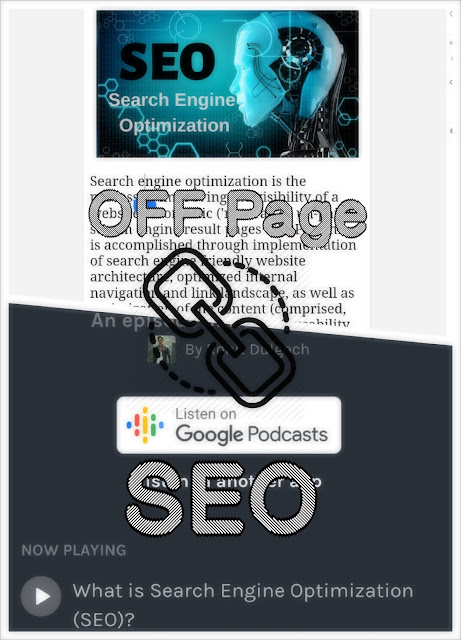ON Page and OFF Page SEO
SEO is as much art as it is science, but at its core, it is the discipline of making user-friendly & useful content understandable and easily digestible for search engines. SEO may target different kinds of search, including image search, video search, and academic search. Promoting a site to increase the number of backlinks, or inbound links is another SEO tactic
Search Engine Optimization strategy can be divided into two different categories:
ON-PAGE SEO and OFF-PAGE SEO. Both are crucial to the success of an SEO campaign, but they’re on completely different sides of the fence when it comes to improving your search engine
rankings.
ON Page SEO:-
On page SEO (also known as “on-site” SEO) is the act of optimizing different parts of your website that affect your search engine rankings.
On-page factors include technical set-up – the quality of your code – textual and visual content and user-friendliness of your site.
Important On-page SEO points:
1) SEO friendly URL:-
a) It should include your main focus keyword
b) Separate each word by a hyphen
c) small Letters
Example:
www.yourdomain.com/digital-marketing-course.html
2) Page title:-
a) It should start with the main focus keyword
b) Its length should 65 characters which count space also
Example:
<title> main focus keyword</title>
3) Page description (Meta description):-
a) Its Describe your web page
b) It should include your main focus keyword with a description
c) It should be 155 to 165 characters with include space
Example:
<meta name=”description” content=”your page description with main focus
keyword” />
4) Meta keyword:-
a)it include your targeted keywords minimum 5 keywords.
b) and each keyword separated by a comma
example :
<meta
name=”keywords” content=”keyword1,keyword2,keyword3,keyword4,keyword5,….” />
5) Your web page content should include <H1>,<H2>,<h3> HTML tags with
main focus keyword.
6) Your first hundred words of your first paragraph should include your
main focus keyword.
7) Your web page content paragraph should include LSI keywords.
(search related keywords)
8) Your web page should include 2 internal links and 2 external links
Example:
<a herf=”seo-friendly-url.html” Title=”main focus keyword”> Anchor Text
</a>
9) Image optimization:-
a) Image name should include your main focus main keyword
exp:-
<img src=”main-focus-keyword.jpg” alt=”main focus keyword” />
OFF PAGE SEO:-
“Off-page SEO" (also called "off-site SEO") refers to actions taken outside of your own website to impact your rankings within search engine results pages (SERPs).
Optimizing for off-site ranking factors involves improving search engine and user perception of a site's popularity, relevance, trustworthiness, and authority. This is accomplished by other reputable places on the Internet (pages, sites, people, etc.) linking to or promoting your website, and effectively "vouching" for the quality of your content.(Build Backlinks)
Off-page SEO simply tells Google what others think about your site.
For example, if you’ve got a lot of valuable links pointing to your pages, search engines will assume that you’ve got great content – the type that provides value for users.
Important OFF page SEO points:-
1) Social Media Sharing.
2) Question and Answer link Building.
3) Blog Comments.
4) Article Submission.
5) Infographics Images.
6) Guest Posting
And Many more...




